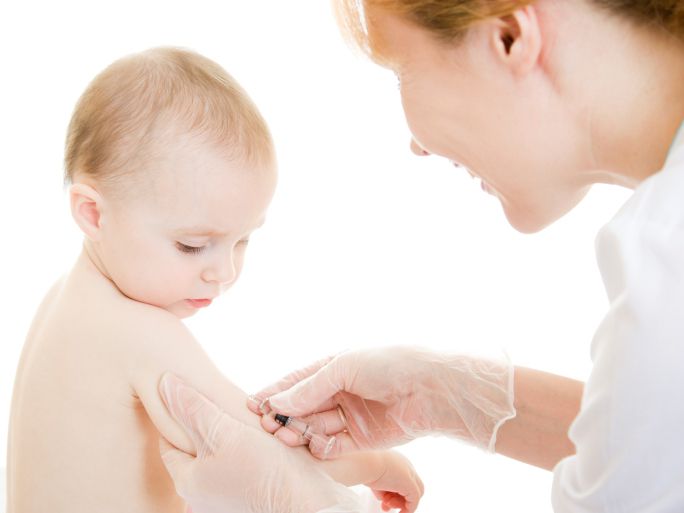Giving young children the influenza and pneumococcal vaccines together appears to increase their risk of fever, according to a study led by researchers from Columbia University Medical Center (CUMC) and the Centers for Disease Control and Prevention (CDC). However, the fever was brief, and medical care was sought for few children, supporting the routine immunisation schedule for these vaccines, including the recommendation to administer them simultaneously. The study, which looked at children 6–23 months old, was published online on Jan. 6, 2014, in JAMA Pediatrics.
Public health experts agree that timely immunisations are an important means of protection against serious diseases and infections for people of all ages. The CDC and other medical professional organisations often recommend giving the influenza and pneumococcal vaccines at the same visit, if both are due—both to prevent getting influenza or other infections between visits and to avoid a possible delay in vaccinations due to difficulty returning to the clinic (because of work schedules or other competing priorities).
“While our data suggest that giving children the influenza and pneumococcal vaccines together at the same visit increases the risk of fever, compared with getting only one of the vaccines at the visit, these findings should be viewed in context of the benefit of vaccines to prevent serious illness in young children, as well as the recognised need to increase vaccination rates overall,” said study first author Melissa S. Stockwell, MD, MPH, Florence Irving Assistant Professor of Pediatrics and Population and Family Health at Columbia College of Physicians and Surgeons, with a joint appointment at Columbia’s Mailman School of Public Health.
“Parents should be made aware that their child might develop a fever following simultaneous influenza and pneumococcal vaccinations—but that the benefits of these vaccines outweigh the risk of fever and, in most cases, the fever will be brief,” said Dr. Stockwell. “For the small group of children who must avoid fever, these findings provide important information for clinicians and parents.”
The study followed 530 children recruited during the 2011–2012 influenza season from three community-based clinics affiliated with NewYork-Presbyterian /Columbia University Medical Center, who were receiving their usual vaccinations.
Parents received a text message on the night of vaccination and the seven subsequent nights, asking them to report the highest temperature in their child since the temperature had last been taken. Messages were sent in English or Spanish, based on parent preference. More than 90% of families who were confirmed to have received a text message on the day of or day after vaccination responded to the message, and 85% of parents reported being very satisfied with their participation in the study.
After controlling for age and other factors, among children who received simultaneous influenza and pneumococcal vaccines, about a third (37.6%) had a fever of 100.4 F (38 C) or higher on the day of or day after vaccination, compared with children who received only the pneumococcal (9.5%) or only the influenza (7.5%) vaccine. In other words, children receiving the influenza and pneumococcal vaccine together were about three times as likely to have a fever on the day of or day after vaccination, compared with children who received either vaccine alone. There were no differences among the groups in rates of fever in the 2–7 days after vaccination.
Overall, for every 100 children there were an additional 20–23 cases of temperatures of 100.4 F (38 C) or higher in children with simultaneous influenza and pneumococcal vaccination, compared with those who received only one of the vaccines. There were also 15 additional cases of temperatures of 102.2 F (39 C) or higher in children who received both vaccines, compared with the influenza vaccine alone, but not compared with the pneumococcal vaccine.
(Source: Columbia University, JAMA Pediatrics)











